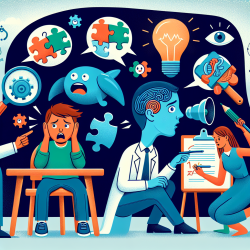The study, which involved record linkage of multiple Scotland-wide databases, revealed that children on antiepileptic medication are at a higher risk for several adverse outcomes compared to their peers. Key findings include:
- Increased school absence (Incidence Rate Ratio [IRR] 1.43, 95% CI: 1.38, 1.48)
- Higher likelihood of special educational needs (Odds Ratio [OR] 9.60, 95% CI: 9.02, 10.23)
- Lower academic achievement (OR 3.43, 95% CI: 2.74, 4.29)
- Higher rates of unemployment (OR 1.82, 95% CI: 1.60, 2.07)
- Increased hospital admissions (Hazard Ratio [HR] 3.56, 95% CI: 3.42, 3.70)
- Higher mortality rates (HR 22.02, 95% CI: 17.00, 28.53)
These findings underscore the importance of a multidisciplinary approach to care for children with epilepsy. Here are some data-driven strategies that practitioners can implement:
1. Integrated Care Approach
Children with epilepsy should receive integrated care that spans education and healthcare. This involves collaboration between physicians, teachers, parents, educational psychologists, and social services. Integrated care can help manage absenteeism and improve academic performance.
2. Tailored Educational Interventions
Special educational needs are significantly higher among children on antiepileptic medication. Practitioners should work closely with educators to develop individualized education plans (IEPs) that address specific learning difficulties and cognitive impairments.
3. Addressing Comorbid Conditions
Comorbid conditions such as ADHD and depression are more prevalent among children on antiepileptic medication. Addressing these conditions through appropriate interventions can improve overall outcomes. Adjusting for these comorbidities made little difference to the effect sizes, indicating the need for targeted interventions.
4. Reducing School Absenteeism
Absenteeism partly explains poorer academic achievement and higher unemployment rates. Strategies to reduce absenteeism include providing seizure plans, social and emotional support, and adapting teaching methods to accommodate the child's needs.
5. Continuous Monitoring and Support
Continuous monitoring of the child's health and educational progress is crucial. Regular follow-ups with healthcare providers and educators can help identify issues early and adjust interventions accordingly.
6. Promoting Social Inclusion
Children with epilepsy often face social isolation. Encouraging social inclusion through cooperative learning and peer support can enhance their emotional well-being and academic performance.
By implementing these strategies, practitioners can help mitigate the adverse outcomes associated with antiepileptic medication and improve the quality of life for children with epilepsy. For those interested in further research, the original study provides a comprehensive analysis of the data and can be accessed here: Educational and health outcomes of children and adolescents receiving antiepileptic medication: Scotland-wide record linkage study of 766 244 schoolchildren.










